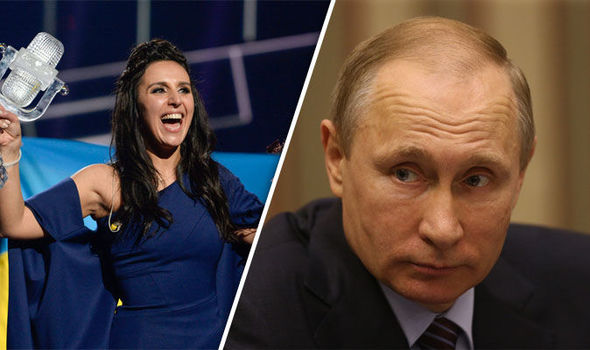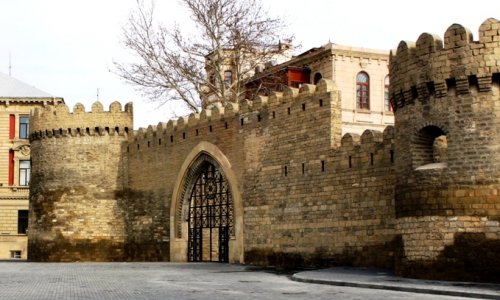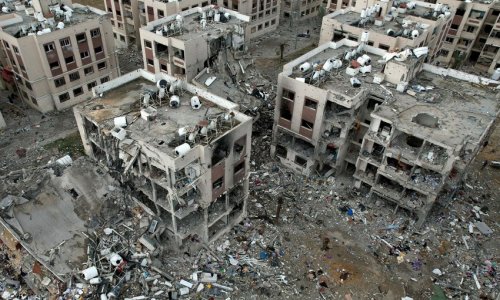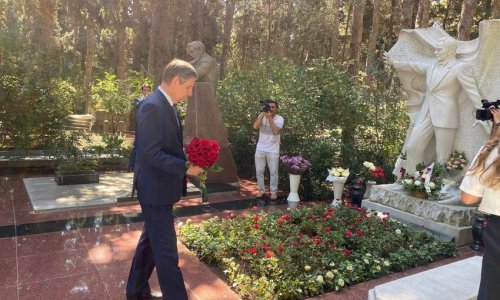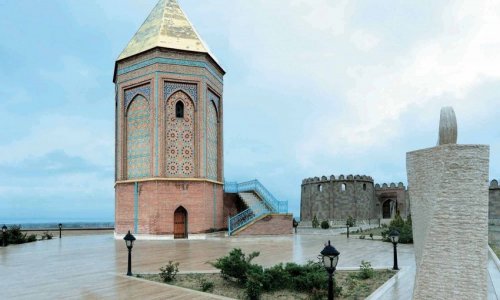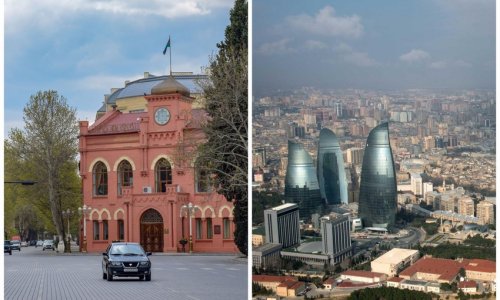A Russian senator has said that a Ukrainian singer's victory in the Eurovision Song Contest was a case of politics prevailing over art, and has suggested Russia skip next year's contest in response, Russian state media reports.
Jamala of Ukraine won a politically charged edition of the annual event in Stockholm, Sweden, on Saturday night with her performance of "1944," a somber but controversial song that evoked Moscow's deportation of members of her Crimean ethnic group during World War II.
But many listeners saw the song as a rebuke to Russian President Vladimir Putin's 2014 military push into Ukraine, when Russia annexed Crimea. The song was labeled anti-Russian by Russian media last week.
Russian Senator Frants Klintsevich told reporters Sunday that Jamala's victory sent an alarming signal, and questioned the future of the contest, state news agency RIA Novosti reported.
Klintsevich, first deputy chairman of the Federation Council Committee on Defense and Security, suggested Russia could skip next year's contest, which will be held in Kiev, Ukraine's capital, due to Jamala's win.
Organizers of next year's event would go out of their way to politicize it "to the maximum," RIA Novosti reported.
"I don't rule out that the stage could even be set in the Maidan," he said, referring to the square in Ukraine's capital that was the scene of protests that led to the toppling of then-President Viktor Yanukovych and was followed by Russia's intervention.
Ukrainian President Petro Poroshenko tweeted his congratulations to Jamala.
Jamala's victory particularly rankled many Russian viewers as it came over a Russian contestant, Sergey Lazarev, who was the pre-competition favorite.
John Kennedy O'Connor, a journalist who has written books on the Eurovision Song Contest, said Lazarev was "the hottest favorite I've ever known in the contest" but his entry "crashed and burned," finishing third behind Australia's Dami Im.
"So there's sour grapes on one side, and then you've got political anger on the other," he said, of Russia's disappointment.
He said that, in his opinion, the Russian complaints about Ukrainian entry held some merit, as the song appeared to be in breach of rules that there cannot be a political message to entries.
"This year, from my interpretation, that rule was not enforced," he said.
"I know the Ukrainians are claiming this is a song about an historical event... but you cannot get away from the fact that something similar is happening in Ukraine right now, and this was a wonderful way for the Ukrainians to, if you like, stick it to the Russians. I can understand the Russians feeling upset with the fact that the lyrics were approved," he told CNN.
Jamala, whose full name is Susana Jamaladynova, told Ukraine Today in February that she wrote the song because she was inspired by a story her great-grandmother told her about the deportation of her family and others in Crimea at the orders of Josef Stalin.
"I would prefer that all these terrible things did not happen to my great-grandmother, and I would even prefer if this song did not exist," the tearful competitor told reporters after the competition.
Stalin accused the Tatars of collaborating with the Germans during World War II, according to Encyclopedia Brittanica.
Jamala said that the composition is about all people who are victims of past tragedies. She prepared for the contest by listening to the soundtrack from the Holocaust movie "Schindler's List." Jamala said she hopes her song will have the same power as the movie's music.
(CNN)
www.ann.az
Follow us !

